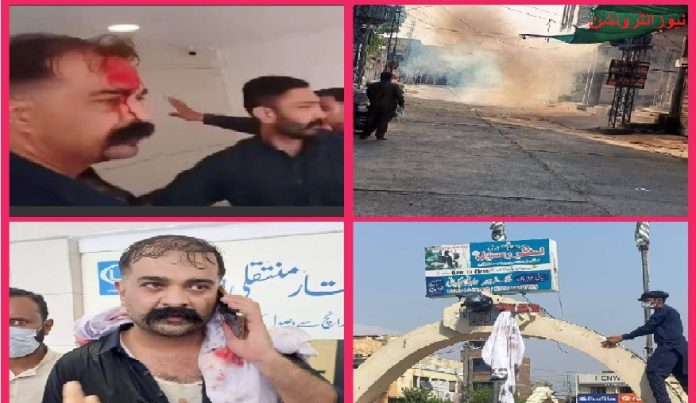Protests have erupted across Pakistan Occupied Jammu and Kashmir (POJK) following the arrest of business leaders and members of the Action Committee. The demonstrators expressed outrage against the oppressive measures taken by the occupying Prime Minister, accusing him of pushing the region towards devastation.
The Public Action Committee has announced a complete shutdown in POJK on Friday in response to the arrests and reported police brutality in Dadyal and other areas. Tensions escalated as tear gas was deployed and orders for a lathi charge were issued during the public protests. Reportedly, a girl lost her life in the action while others were injured. Angered protestors cornered an Assistant Commissioner, assaulting him and setting his vehicle ablaze. His torn clothes and helmet were hung on the gates of the city square as a symbol of protest.
Under the banner of the Joint Awami Action Committee, peaceful protests have been ongoing for over a year, with Kashmiris demanding their rights to essentials like electricity, wheat flour, and a fair share of the region’s wealth. Despite their grievances, Pakistan has turned a deaf ear to their demands.
In response to mass processions planned for Muzaffarabad on May 11, Pakistan deployed forces to suppress the peaceful protests, resorting to tear gas shelling even in schools and hospitals in Dadyal.
The brutal crackdown on civilian protests has sparked outrage among residents, leading to massive street demonstrations where slogans condemning Pakistan’s actions reverberated.
Notably, POJK has been under illegal occupation by Pakistan since independence, with residents accusing Pakistan of treating the region as its colony rather than granting them their rightful freedoms.
The recent incident serves as a stark reminder of the plight of the people of POJK under Pakistan’s rule, echoing the oppressive tactics of imperial powers in the 20th century.

